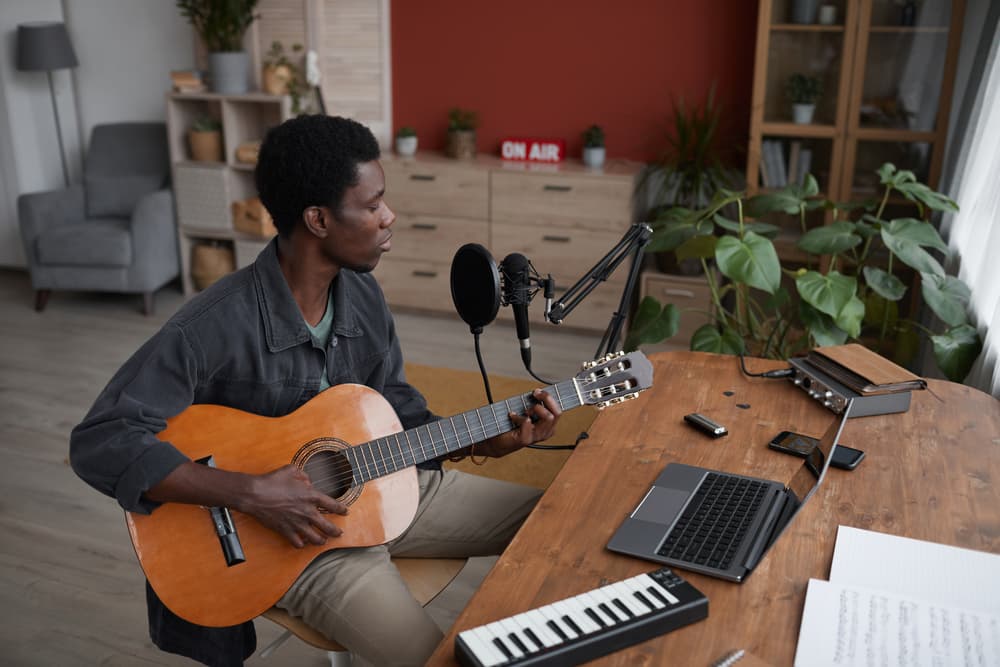No matter how good your music is, if it’s not heard by others, it means nothing. That’s why having a great recording of your song is so important. Whether you want to get an idea of what your music sounds like before recording a professional version, or you’re just looking to see if you have any potential as a musician and songwriter, recording your own songs at home can be a useful tool.
Before we dive in further, it’s important to note that the steps outlined below are applicable if you only intend on recording vocals or playing guitar/bass/keyboard for your track. If you plan on recording other instruments, then you might want to send us an email, and ask us directly. We’d be more than happy to help!
Equipment You’ll Need
When it comes to equipment for recording, you’re going to need a few things that are specific to the type of music you’re trying to record. We’ve outlined these below:
Microphone
This is the device that records the sound that you play on the instrument. There are a ton of different microphones available, so be sure to find one that’s appropriate for the genre of music you want to record. You’ll also want to make sure that you choose one that has a cardioid pattern, as this will help reduce noise and produce clearer audio.
Audio Interface
This is a piece of hardware that connects your microphone to your computer. It allows you to plug in your instruments and allows you to record audio without having to use your computer’s internal mic.
Headphones
No matter how good your speakers are, they’ll never sound as good as using headphones. This is mainly because headphones isolate you from the sounds around you, making it much easier for you to focus on the sounds you’re recording.
Lyrics and Notes
These materials can help you throughout your recording process. Although you should rehearse quite a bit before recording, it’s good to have lyrics and other notes on hand just in case you need them.

Set up your recording environment
To record your songs, you’re going to need a few things set up in a room that is isolated from any external sounds. Doing this will allow you to record tracks with the confidence that you aren’t going to be disturbed by any other sounds you may have in the room. Noise from any fans, air conditioners, routers, etc., in the area, will cause unwanted noise that will be recorded on your tracks.
You’re also going to want to figure out where you’re going to be recording your songs. We’d recommend finding somewhere quiet and isolated, like a studio inside a friend’s house that is separate from their family. When setting up your recording environment, you want to make sure that you’re not going to be distracted by any other objects that you may have in the room.
For example, if you’re recording in a bedroom, you don’t want to be distracted by anything else in the room that may cause you to be distracted while recording.
Having your own recording setup will help you refine your music and learn more about songwriting. It’s also an excellent way to gain inspiration from other musicians and songwriters. Even if you’re just looking to practice your songs in isolation, recording your own music can be a useful tool.
It can also help you get a better understanding of what your music sounds like before you record a professional version or see if you have any potential as a musician and songwriter.
Keep in mind that it takes time, effort, and practice to become a great musician, and recording great music isn’t easy. However, with the right approach, you can record great songs in no time.